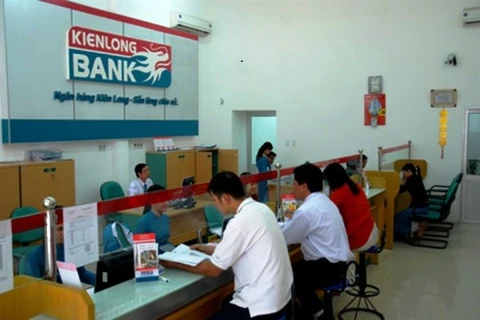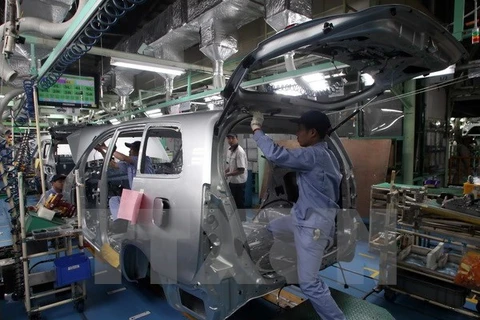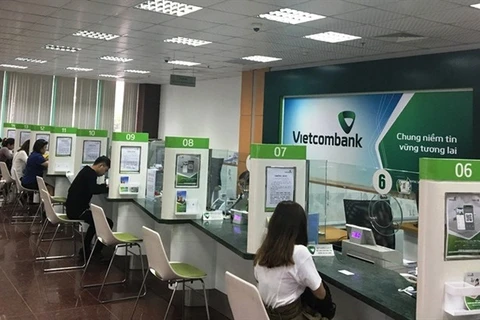 State-owned enterprises still hold more than 15 percent of Saigonbank’s charter capital. (Source: Saigon Bank)
State-owned enterprises still hold more than 15 percent of Saigonbank’s charter capital. (Source: Saigon Bank)Hanoi (VNS/VNA) - The State Bank of Vietnam (SBV) has set a target to stop cross-ownership among credit institutions (CIs) by the end of 2020.
Under Circular No 46/2018/TT-NHNN, which will take effect from March 1 this year, major shareholders of a CI and their relatives will not be allowed to hold more than 5 percent of charter capital in another credit institution from December 31, 2020.
Major shareholders and their relatives are also prohibited from increasing their stake holdings in any CI in any form, except for special cases regulated by the central bank.
In addition, CIs are not permitted to lend to major shareholders and their relatives after 90 days from the effective date of the new circular until shareholders meet regulations on holding less than 5 percent of another CI’s charter capital.
According to analysts, the favourable stock market and the country’s positive economic growth had helped some large banks, including Vietcombank, step up divestment from other financial institutions to meet the new regulation.
At the end of 2018, Vietcombank officially completed a plan to reduce its holding ratio at other CIs, including Military Bank, Eximbank, Saigon Bank, OCB and Cement Financial Company to meet the central bank’s requirements.
According to SBV Governor Le Minh Hung, the bank had directed and supervised CIs to resolve cross-ownership through share transfer and divestment and mergers and acquisitions in recent years, which had helped reduce cross-ownership significantly.
SBV data showed that the number of pairs of CIs with direct cross-ownership had decreased from seven in 2012 to one.
Direct share ownership between banks and enterprises also decreased from 56 pairs in June 2012 to four: including Eximbank with Viet Dragon Securities Company, ABBank with An Binh Securities Company, Sacombank with Ben Tre Import and Export Joint Stock Company and Orient Joint Stock Commercial Bank (OCB) with Vien Dong Insurance Company.
For violations of share ownership, Saigonbank, PGBank, Bao Viet Bank and PVcomBank have shareholders which are State-owned enterprises owning more than 15 percent of the banks’ charter capital.
Saigonbank, PG Bank and Bao Viet Bank, still have groups of shareholders related to each other owning over 20 percent of the banks’ charter capital.
According to a SBV representative, who declined to be named, cross-ownership and the problem of dominant shareholder groups had basically been controlled but was not yet resolved. The main reason was that the settlement of cross-ownership was actually a matter of transferring shares, so the CIs, which were public companies and listed on the stock exchanges, needed a step-by-step implementation schedule to determine the time, price and suitable investors with an aim to ensure maximum benefits for both the CIs and the State.
However, expert Bui Quang Tin said strict regulations on cross-ownership were necessary to speed up the settlement, as the practice had a negative impact on the banking system, evident in the high ratio of non-performing loans.
Due to cross-ownership, many banks had increased their charter capital to several trillion Vietnamese dong; however, the figures were unrealistic as they came from loans from other banks. – VNS/VNA
VNA























